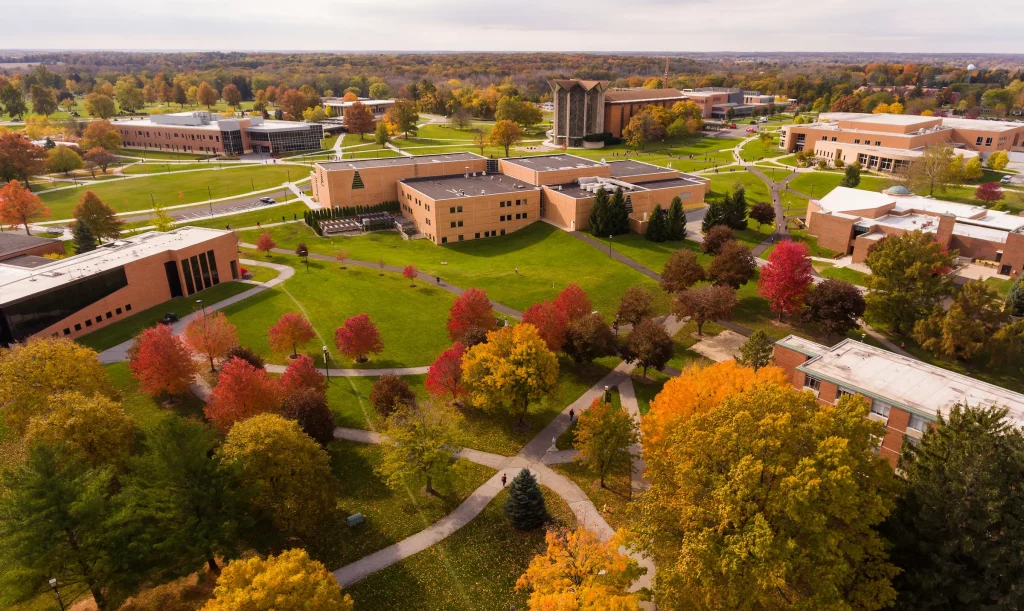National Science Foundation Awards Valparaiso University Funding for Chemistry Research
Valparaiso University secured a $299,083 grant from the National Science Foundation. The grant will fund a two-year project titled “Laboratory Radiation Chemistry Methods to Induce Rapid Aging of Microplastics in Water to Assess Fundamental Chemical Reactivity Changes.”
With this award, Valparaiso University students and faculty will partner with a professor and students from California State University, Long Beach and researchers at Renishaw Inc. and the Idaho National Laboratory. Together, the team will use specialized equipment at the University of Notre Dame Radiation Laboratory to conduct experiments to determine the changes microplastics undergo due to weathering and other processes. The results of their analyses could lead to increased understanding of the long-term impact to ecosystems and human health.
“This grant will create additional opportunities to enrich chemistry education at Valparaiso University,” said Richard A. Gillman, D.A., interim provost. “Students at the undergraduate level will have the ability to conduct exciting research with globally relevant applications, enhancing their education and better equipping them for life after graduation.”
Julie Peller, Ph.D., professor of chemistry, is the principal investigator for the grant. The project will focus on microplastic degradation in fresh water environments.
“As radiation chemists, we can measure and demonstrate aging and degradation of microplastics in a controlled environment on a faster scale than in nature,” Peller said. “By doing that, we can study and investigate the long-term changes that take place.”
In her research, Peller works closely with undergraduate students, and she sees this as a vital opportunity for their education. The research she has done with Valpo students over the past few years significantly contributed to the background needed for this project to move forward.
“Many of our students who participate in undergraduate research projects go on to pursue further education in graduate or professional schooling. This project will provide students with the ability to experience some other laboratory environments and specialized equipment while getting an idea of the bigger scope of work that is done in the field of research,” Peller said.
Since plastic materials are extremely stable, much of microplastics pollution has resided in the water for many decades, where it undergoes changes very slowly. However, these changes are not well understood, and may be harmful to ecosystems and human health. This project will investigate these long-term changes of microplastics in water to determine the details of the chemical changes and assess the level of hazard created from their slow breakdown. This will be done by using high energy laboratory sources to create similar weathering changes in microplastics over a much shorter time.
Visit valpo.edu/undergraduate-research to learn more about the research projects Valparaiso University students participate in each semester at Valpo.
